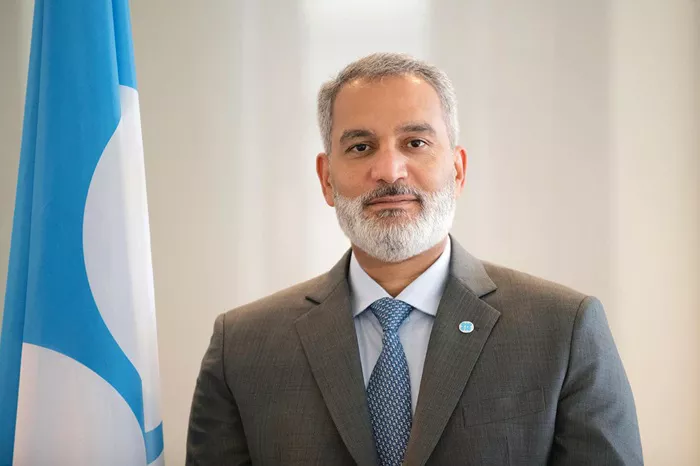OPEC’s Secretary General, Haitham Al Ghais, has emphasized that there is no immediate peak in oil demand expected, citing demographic and economic trends as key factors driving continued global energy consumption. In an exclusive interview, Al Ghais detailed the organization’s outlook for the future of oil and energy, stressing the role of OPEC and its partners in navigating the complexities of global markets.
Global Demographic and Economic Growth Fueling Oil Demand
According to Al Ghais, the world’s increasing population and economic expansion will lead to a sustained rise in energy—and consequently, oil—demand. He pointed to projections that the global population will reach 9.7 billion by 2050, with two-thirds of the population expected to live in cities. Economic growth is anticipated to double by mid-century, while the number of people joining the global middle class is expected to swell, reaching five billion by 2030.
This demographic shift, Al Ghais noted, will drive a 24% rise in global energy demand by 2050, with oil consumption forecasted to exceed 120 million barrels per day (mb/d). He highlighted the ongoing global reliance on diverse energy sources, noting that the world is consuming more coal, oil, gas, and electricity than ever before.
Interconnectedness of Energy Sources
The OPEC Secretary General also pointed out the interdependence between various energy sources. The expansion of renewable energy technologies, such as wind and solar power, relies heavily on petroleum-powered machinery and products derived from oil. Additionally, oil-based products are integral to the production of lithium-ion batteries, as well as numerous everyday goods, from medical supplies to agricultural products. Al Ghais emphasized that these interconnected demands for petroleum and petroleum products will ensure that oil consumption continues to grow.
OPEC’s Focus on Market Stability and Economic Growth
OPEC continually monitors global market dynamics to make informed decisions, Al Ghais explained. He noted that while the global economic growth outlook remains optimistic, with growth projections of 3% for 2025 and 3.1% for 2026, uncertainties—including tariff-related dynamics and trade disputes—warrant vigilance.
Despite these uncertainties, OPEC remains focused on ensuring market stability. Al Ghais stressed that OPEC’s decision-making process is rooted in robust data and analysis, aiming to maintain a balanced oil market and sustain market stability.
Emerging of OPEC+ and Market Stabilization
Al Ghais also reflected on the achievements of OPEC+—the coalition of OPEC members and non-member oil producers. The group’s efforts to stabilize the oil market through voluntary production adjustments have been instrumental in mitigating market volatility, particularly during periods of economic uncertainty, such as the COVID-19 pandemic.
Now in its ninth year, OPEC+ continues to focus on achieving stability for all industry stakeholders, including producers, consumers, and investors. According to Al Ghais, OPEC+ has proven its ability to manage market instability and remains well-positioned to help stabilize the global oil market moving forward.
Inclusivity in Energy Discussions
Al Ghais further emphasized the importance of inclusivity in global energy discussions, particularly in the context of climate change and the transition to sustainable energy. At COP29 in Azerbaijan, he praised the participation of all stakeholders in the conversation about oil and gas, which remain vital to global energy needs. Oil and gas currently make up approximately 55% of the global energy mix, and Al Ghais argued that discussions on future energy pathways must include these essential energy sources.
OPEC, he said, advocates for an “all-energies” approach, recognizing that no single energy source can meet the rising demand for energy across the globe. The organization also supports a comprehensive approach that takes into account the unique circumstances and development priorities of all countries, ensuring that no nation is left behind in the energy transition.
Al Ghais noted that for many in the developing world, access to basic energy needs, such as electricity and clean cooking, remains a priority. He emphasized the importance of the principle of “common but differentiated responsibilities” outlined in the UNFCCC process, which acknowledges the differing capacities of nations in addressing climate change.
Commitment to a Sustainable Energy Future
Looking ahead, Al Ghais reiterated OPEC’s commitment to advancing sustainable energy solutions, with member countries investing in technologies such as carbon capture and storage, direct air capture, and the circular carbon economy. OPEC is also supporting the development of alternative energy sources, including hydrogen, renewables, and nuclear energy.
With OPEC’s expansion—including Brazil’s recent addition to the OPEC and non-OPEC Charter of Cooperation—Al Ghais expressed confidence that the organization will continue to play a crucial role in the future of global energy, ensuring both market stability and energy security.
In conclusion, OPEC remains steadfast in its belief that a balanced and inclusive approach to energy policy is essential for meeting global energy needs while addressing climate goals. The organization looks forward to further contributions at COP30 later this year, where discussions on the future of energy will continue to evolve.


